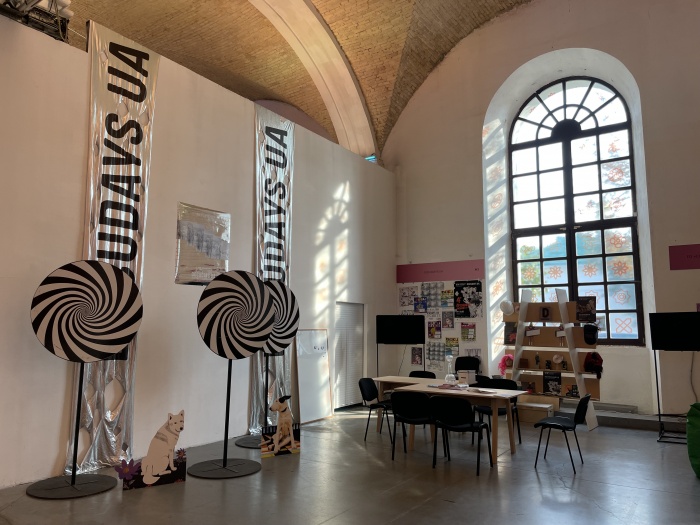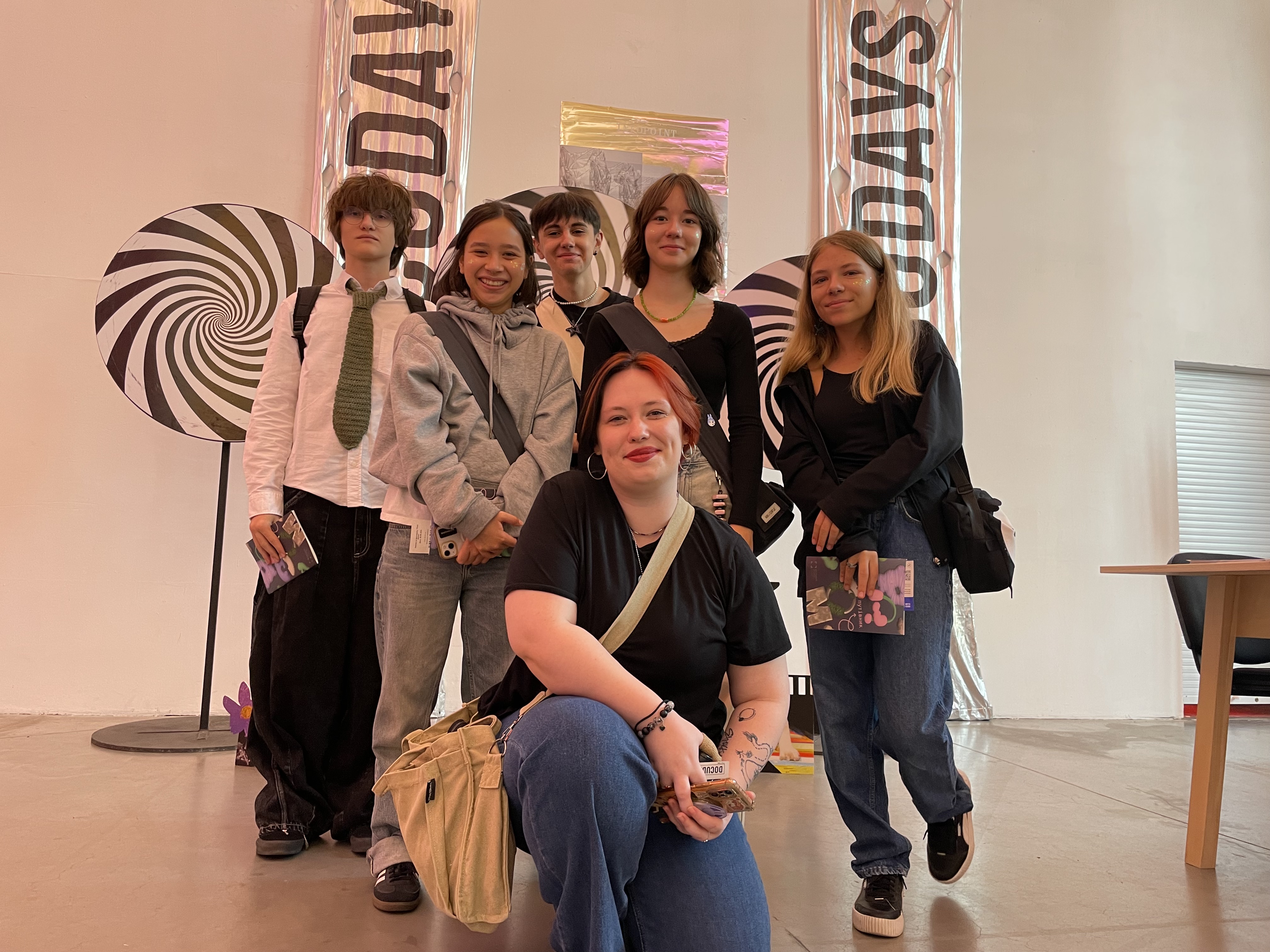On 20–22 September, the festival for children and teenagers All Together took place at the Mystetskyi Arsenal in Kyiv. It was the first time that the Docudays NGO team joined this form of activity: they collected the most interesting film artefacts and planned interactive classes through which they wanted to share their passion for human rights documentaries. Kseniia Opria, the editor of the Docudays UA website, wrote a report based on her three-day observation and attached photos.
“Who are the adults, and do I belong to them?” I asked myself when I was looking at the colourful stands of the festival. Because all of this was actually created for children and teenagers, so that they could learn about the world, people, culture and history. After all, as I used to think, “adults already know all this” and, moreover, it would be strange to give myself the freedom to play “children's” games now.
At the entrance, there was a corner with many plants and flowers, then the pompous stand of the Goethe Institute. Behind it, on the right, there was an exhibition by the artist Dasha Podoltseva, and on the left, the Docudays UA area. Moving forward through the space, one could see museum finds from different parts of Ukraine: Luhansk, Donetsk, Okhtyrka, Dnipro, Kherson, Mykolaiv, Volyn, Kirovohrad (and this is just a part of what I could remember). Activities from the Serhiy Prytula Foundation, language schools, modern educational institutions, workshops, a robotics school, the Museum in the Dark, the Museum of the Second World War, the Chornobyl Museum, the Revolution of Dignity Museum, the Supreme Court, Kyiv Plast, bookstores, and many more. If only all this had been gathered at one fair in my childhood!
Morning. The booth of Docudays UA and DOCU/CLUB film clubs is waiting for the first visitors. Photo: Kseniia Opria
On Friday, there were many school groups. Together we watched the film Gabriel Reports on the World Cup (dir. Els van Driel), moderated by Nataliya Dobrianska. And at our stand, I was lucky enough to meet a young teacher, Daria, who brought her students to the festival from Vyshneve (t/n — a city in Bucha Raion, Kyiv Oblast), filmed her class with a stylish retro camera and shared her impressions of the event:
“Our school principal is very active in monitoring all the information, and when we saw that the Arsenal was hosting a festival, and an educational one at that, we decided we had to go! We got ready in two days and are very excited. It took us about 40 minutes to get there, we hired buses. It's always interesting to walk through the whole space, to see new ideas and take something for ourselves — it's very necessary. Because our students are active, extremely creative, and your topic is just 100 out of 100 for them!”
Daria and her super team of students. Photo: Kseniia Opria
On Saturday, I completely overcame my shyness and learnt to be the first to approach people and tell them about the work I love. To accept rejection in a conversation, because it happened. Show interest in things, even if they seem “childish”. Asking people about their occupation, admitting that you knew nothing about it before. Most of all, they liked flying a drone simulator and guessing the aromas of spices from the museum about the ancient city of Olvia.
Maksym as a cinematographer. Photo: Katia Sinhurova
The director of the first film, Anastasiia Tykha, joined the screening and spoke at the discussion about how unusual it was to film the previously unknown world of a family of roboticists from Vuhledar: a mother, a father, and two sons. The author researched the boys' activities and asked them about every detail to understand them and capture them truthfully. She also shared her thoughts on the role of her film for children and teenagers:
“Robotics is a rather closed community that is very difficult to learn about from the outside. Even if children don't plan to pursue a mathematical or programming career, it can be interesting at some point in their lives, if only for general development and engagement. I think it's very important that we were able to make a film about something that opens up new areas of life through the story of the characters and their interest. Also, the family I filmed impresses with its strong energy and determination. In our conditions, it is very important to have such an inspiring example. Because sometimes it can be hard. And, in my opinion, it is also valuable for children to see how other children who have twice fled the war in eastern Ukraine remain so enthusiastic, practising their hobby with such ease and interest. Obviously, their favourite pastime helps them get through this difficult stage of life.”
Conversation with director Anastasiia Tykha after the screening of Civil Pitch 2.0 films. Photo: Nika Popova
Of course, the whirlwind of events that took place over the three days did not give a complete answer to who the adults are today — they are different. But at least I broke my own stereotype: being an adult does not mean not being interested in everything around you.